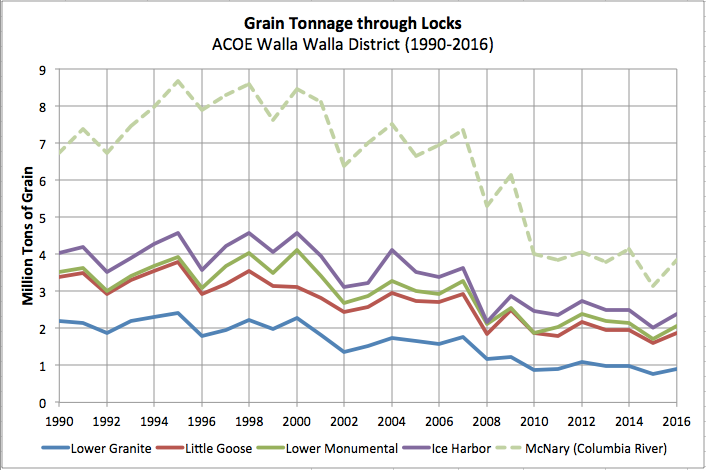forum
library
tutorial
contact

Wheat Industry Weighs
Next Moves on TPP
by Matthew Weaver
Capital Press, February 2, 2018
|
the film forum library tutorial contact |

|
Wheat Industry Weighs
by Matthew Weaver
|
The U.S. wheat industry will discuss its next moves on the Trans-Pacific Partnership
at the winter meetings in Washington,D.C.
 Wheat industry representatives will consider their options next week in Washington, D.C., after the remaining 11 countries in the Trans-Pacific Partnership decided to move ahead without the U.S.
Wheat industry representatives will consider their options next week in Washington, D.C., after the remaining 11 countries in the Trans-Pacific Partnership decided to move ahead without the U.S.
The move could cost U.S. wheat growers hundreds of millions of dollars in lost sales annually in the years ahead.
Glen Squires, CEO of the Washington Grain Commission, expects the trade deal will "clearly be a topic" at the annual winter meetings for the National Association of Wheat Growers and U.S. Wheat Associates.
NAWG's National Wheat Foundation will hold an educational event Feb. 8 on Capitol Hill. Wheat industry representatives will speak with members of Congress about the "absolute importance" of the Japan and Vietnam markets, and all of the others involved in the trade deal, Squires said.
President Donald Trump withdrew from the TPP in January 2017, saying he believed U.S. manufacturers were short-changed in the deal. Representatives of U.S. agriculture felt TPP was a good deal for them and offered better access and lower tariffs in Asian and other Pacific Rim markets.
Trump recently said he would consider re-entering TPP if it represented a better deal for the U.S., according to The Associated Press. Squires hopes that's a recognition of the value of the trade relationships with countries in TPP.
In addition to Japan and Vietnam, Australia, Canada, Mexico, Chile, Malaysia, New Zealand, Peru, Singapore and Brunei are parties to TPP.
Steve Mercer, U.S. Wheat vice president of communications, said continuation of the deal showed that "decisions have consequences."
"The potential harm that we saw when withdrawal was announced a year ago is now really a looming reality for wheat farmers," Mercer said.
Mexico, a member of TPP, was the largest customer for U.S. wheat farmers last year. Japan has consistently been the largest and most loyal buyer of the soft white, club wheat, spring wheat and hard red winter wheat primarily grown in the Northwest, Mercer said.
Upwards of 90 percent of the wheat grown in the Northwest is exported, most of it to Japan and other Asian nations.
Sources in the Japanese milling industry estimate the situation could eventually reduce U.S. wheat import volumes by more than half, representing a loss at the farm gate of $450 million per year at current prices, Mercer said.
"It may not diminish the amount of soft white or Western white that they import too much because they can't really get it from other places," he said. "But the chilling effect of that on prices in general is going to affect every wheat farmer."
Mercer said the industry will push for renewed renegotiations on a bilateral agreement with Japan, and work with Japanese flour millers.
"The difference in cost to the millers probably will overcome the goodwill and loyalty that have been built up over the years," Mercer said, noting the U.S. wheat industry has worked for 70 years to develop the Japanese market. "That's a real concern."
U.S. Wheat will work to help millers express their concerns to the Japanese government, Mercer said.
The discounting of effective tariffs on Canadian and Australian wheat sold to Japan under the new TPP deal would gradually be applied over nine years. The effective tariff on U.S. wheat would not change, Mercer said.
The remaining countries in TPP are slated to sign the deal in March.
"We won't have a huge hit right away, but it certainly will begin having an impact," Mercer said.
Related Pages:
U.S. Must Rejoin TPP, Ag Policy Expert Says by Matthew Weaver, Capital Press, 1/31/18
International Grain Prices More Complex Than One Deal by Lee Rozen, The Daily News, 1/27/18
learn more on topics covered in the film
see the video
read the script
learn the songs
discussion forum
